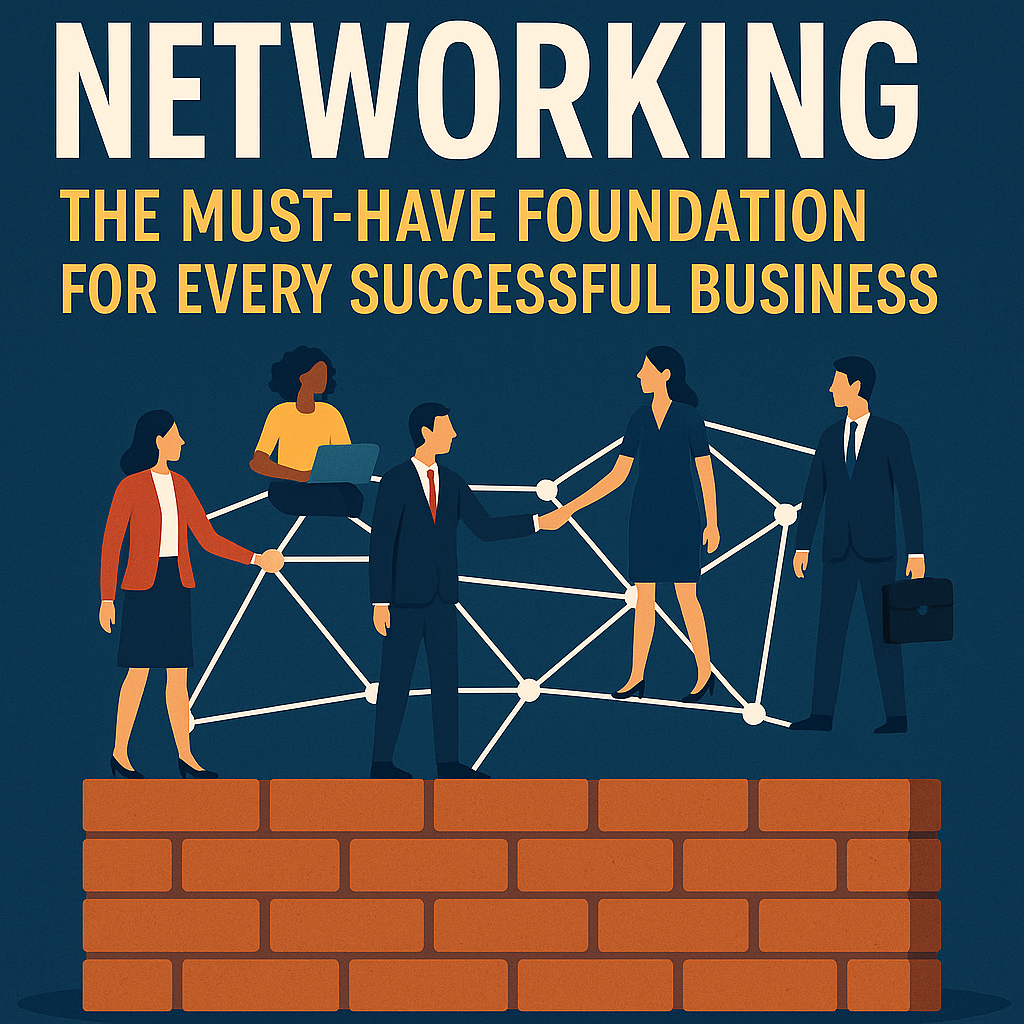Networking: The Must-Have Foundation for Every Successful Business
Networking Is the Base of All Businesses: Building Connections for Lasting Success
Networking is the base of all businesses, serving as the foundational element that drives growth, fosters collaboration, and opens doors to new opportunities. Whether you’re a startup entrepreneur, a seasoned business owner, or a professional climbing the career ladder, building and nurturing a robust network can significantly enhance your chances of success. In today’s interconnected world, where relationships often pave the way to innovation and revenue, understanding why networking matters and how to leverage it effectively is crucial.
Why Networking Is the Base of All Businesses
At its core, networking is about establishing meaningful relationships. These connections act as the lifeblood of business ecosystems, linking individuals and companies in mutually beneficial arrangements. A strong network facilitates the sharing of knowledge, resources, and support, empowering businesses to thrive amid competition.
Many businesses start with a great idea and solid execution plans, but what truly propels them forward is the network supporting them. Investors, clients, mentors, suppliers, and collaborators — all form part of this essential web. Without these critical connections, even the best products and services can struggle to find footing.
How Networking Drives Business Growth
-
Access to Opportunities
Opportunities often come through who you know rather than what you know. By cultivating relationships with industry peers, potential clients, and thought leaders, you position your business to tap into new markets, partnerships, and funding sources. Word-of-mouth referrals alone can provide a steady stream of business leads that are more trusted and often easier to convert. -
Knowledge Sharing and Learning
Networking facilitates the exchange of ideas and strategies that improve business decision-making. Engaging with others exposes you to diverse perspectives, industry trends, and best practices. This learning aspect is invaluable, particularly in rapidly changing markets where staying informed is key to remaining competitive. -
Building Credibility and Trust
Relationships built over time breed trust, which is critical for business success. Consistent networking helps establish your reputation as reliable, knowledgeable, and supportive — traits that entice collaborators and customers alike. Trust often translates into repeat business and long-term partnerships.
Effective Networking Strategies for Businesses
The art of networking isn’t just about collecting contacts but cultivating meaningful relationships. Here are some strategies to ensure that your networking efforts yield results:
-
Attend Industry Events and Conferences
Participating in relevant events gives you direct access to like-minded professionals and potential clients. Prepare to introduce your business succinctly and ask insightful questions to spark genuine conversations. -
Leverage Online Platforms
Social media networks like LinkedIn provide powerful tools for expanding your reach beyond geographic boundaries. Regularly share informative content, engage in discussions, and connect with industry influencers to stay visible. -
Follow Up and Maintain Connections
Networking is a continual process. After meeting someone new, follow up with a personalized message or offer helpful information. Keep in touch through occasional updates or invitations to events. -
Give Before You Get
Aim to add value to your network by offering assistance, advice, or introductions without immediately expecting something in return. This approach fosters goodwill and encourages reciprocity.
The Role of Networking in Different Business Stages
Regardless of your business’s size or maturity, networking plays distinct roles:
-
Startups often rely on networking to find mentors, secure funding, and establish their first customer base. Early relationships can shape their trajectory.
-
Growing businesses benefit from connections that help scale operations, access new channels, and attract talent.
-
Well-established companies use networks to innovate, adapt, and maintain competitive advantage through alliances and industry insights.
Overcoming Networking Challenges
Some professionals find networking intimidating or time-consuming. However, approaching networking with authenticity and clear goals can make it less daunting. Instead of aiming to meet everyone, focus on quality over quantity. Building a smaller circle of trusted contacts often has a greater impact than merely amassing a large number of superficial connections.
Conclusion
In the vast landscape of business, networking is undeniably the base for sustained success. By fostering relationships, sharing knowledge, and building trust, businesses can unlock doors to opportunities that standard marketing or sales strategies alone cannot achieve. Embracing networking as a core component ensures that your business not only survives but flourishes in today’s competitive environment. Ultimately, your network is not just a list of names—it’s a powerful ecosystem that supports your vision and propels your journey forward.







